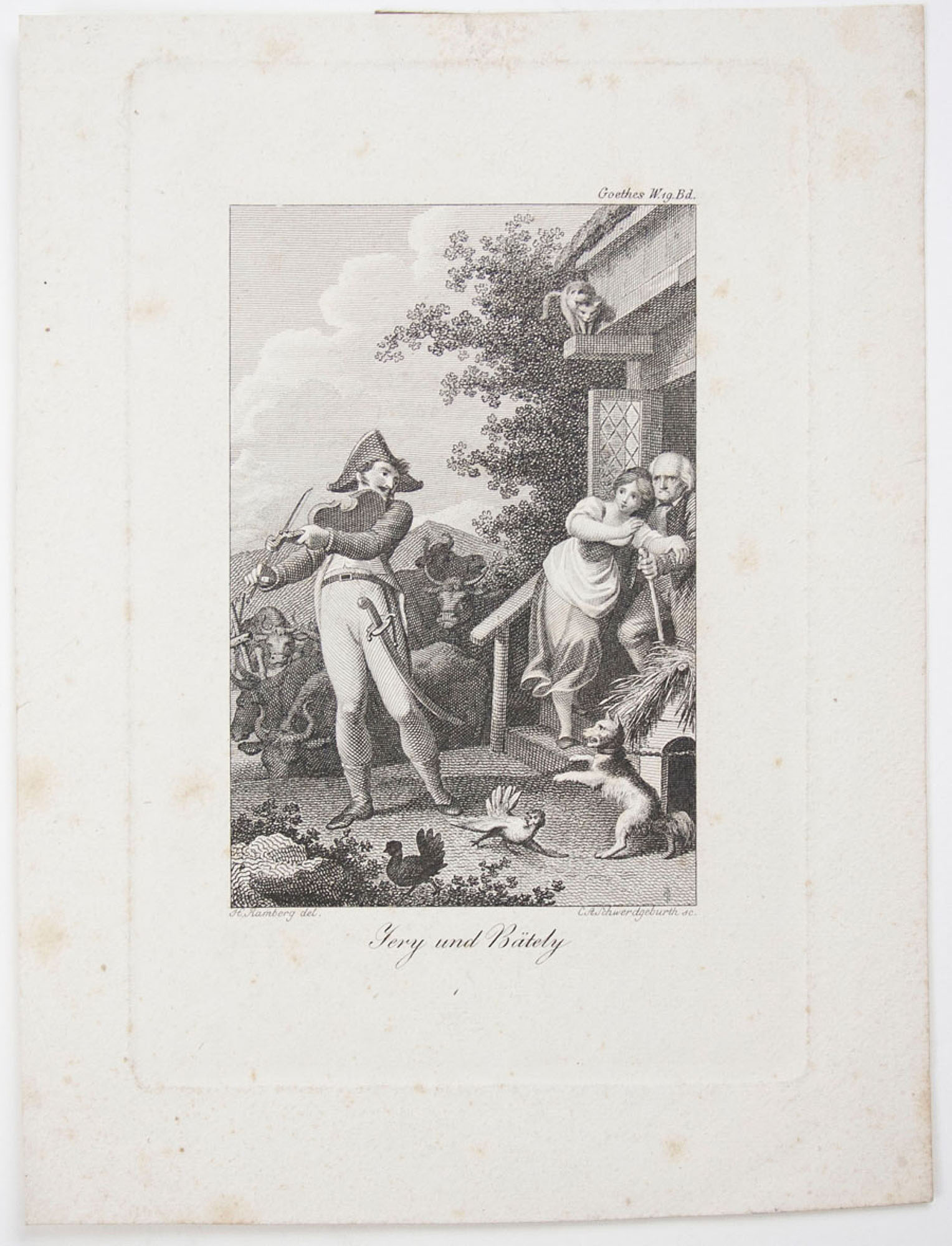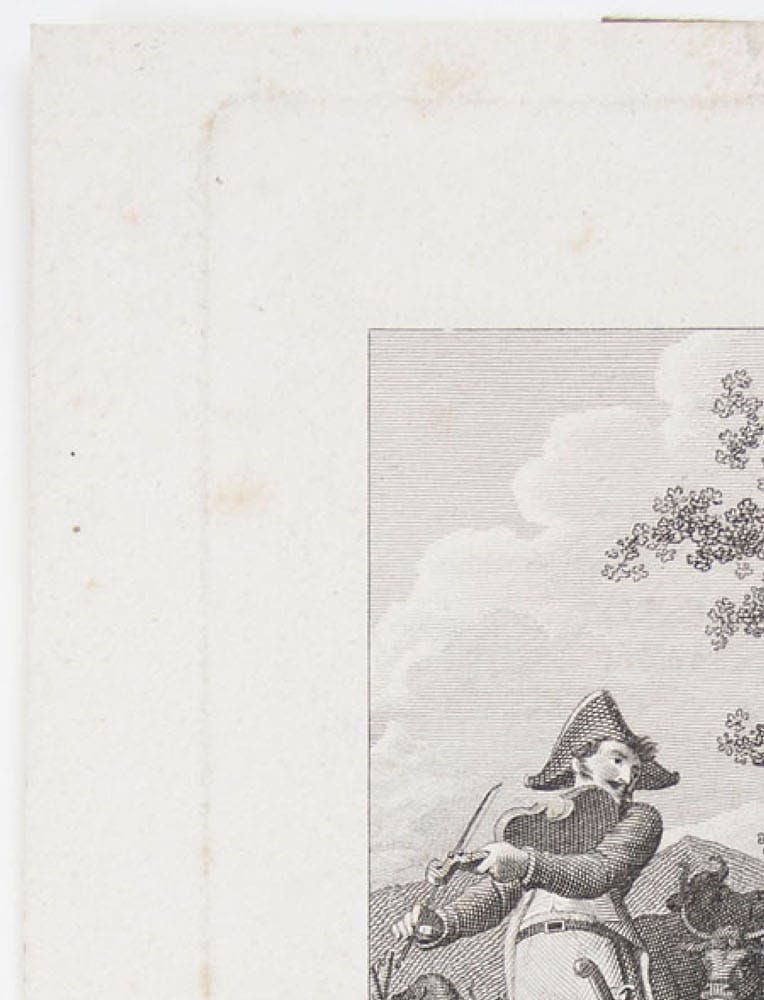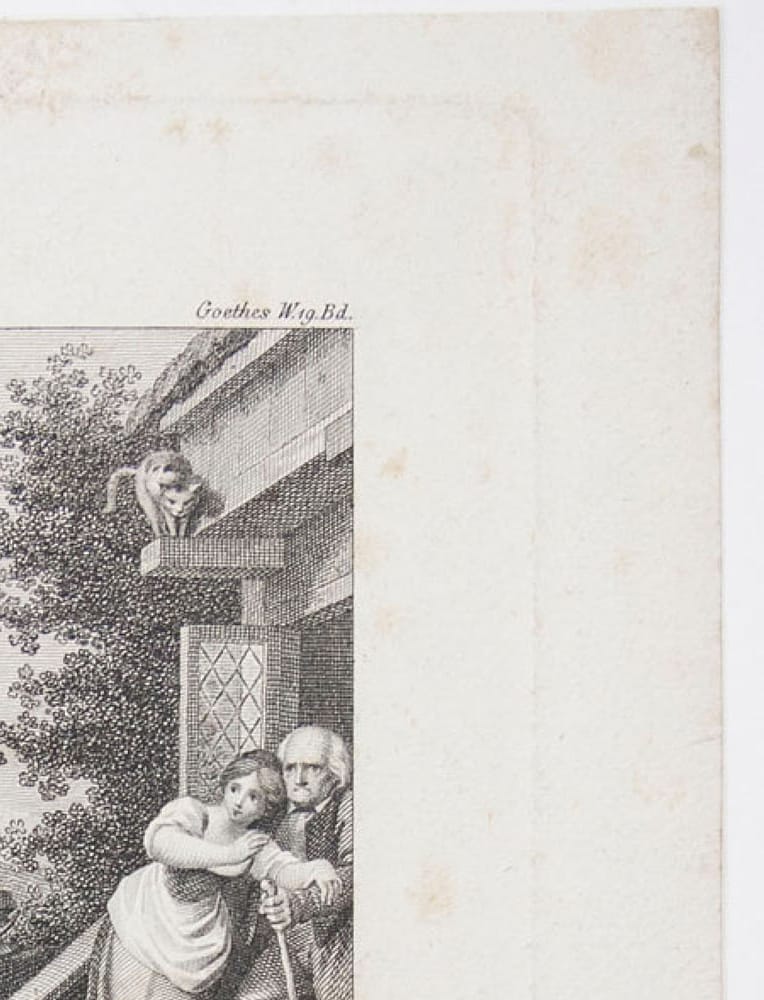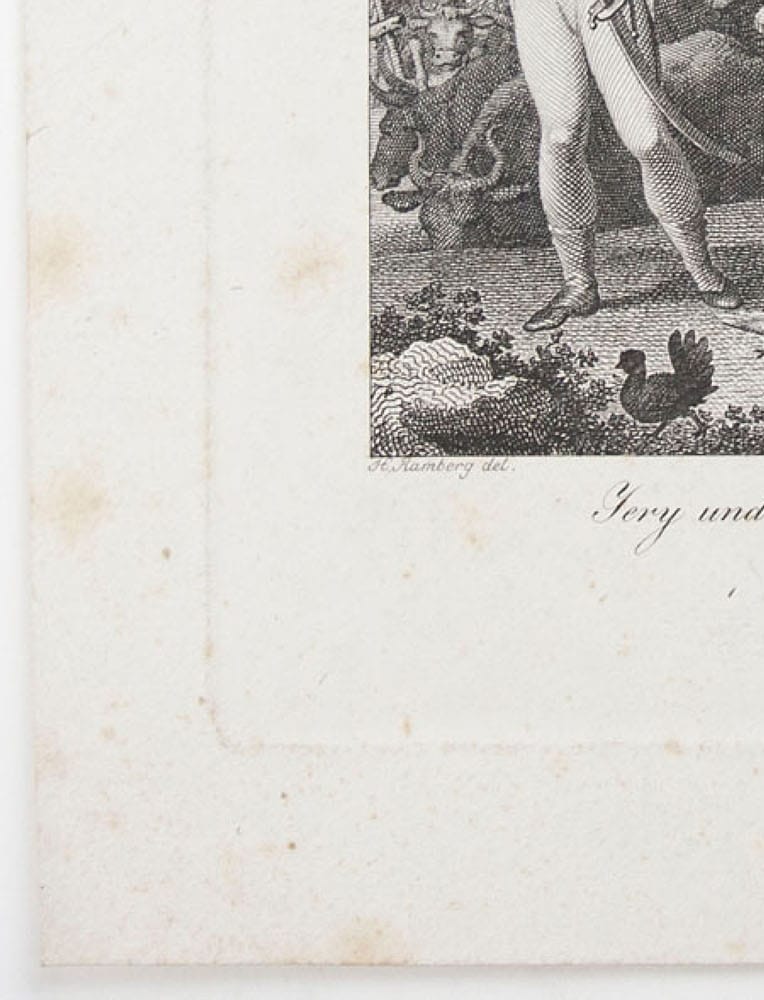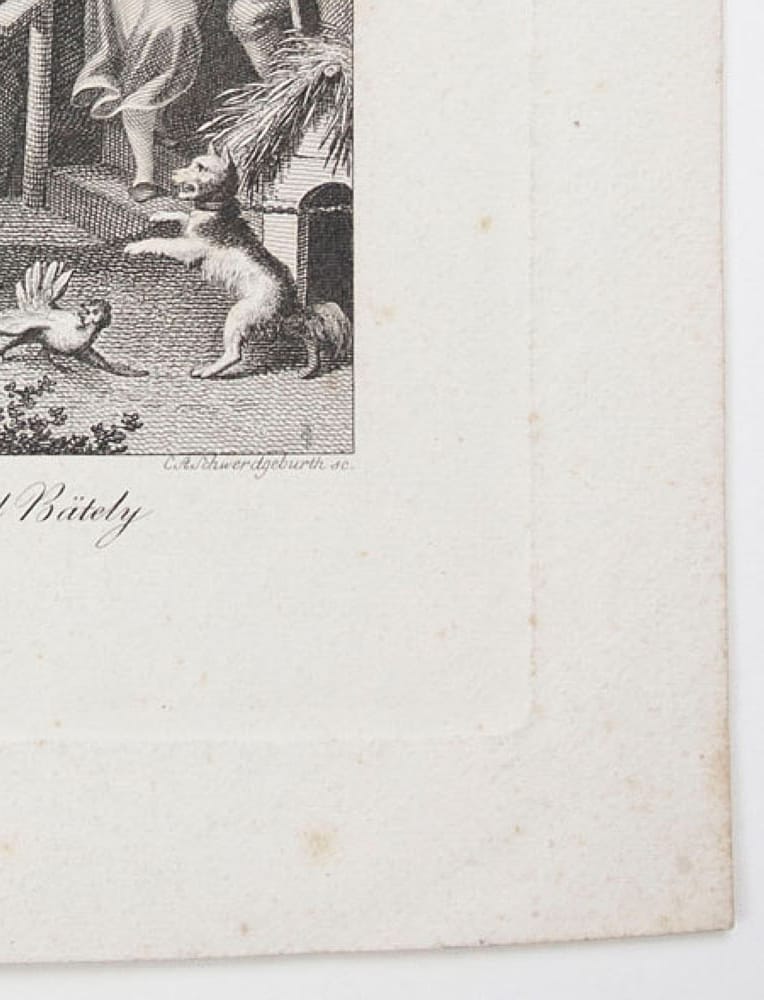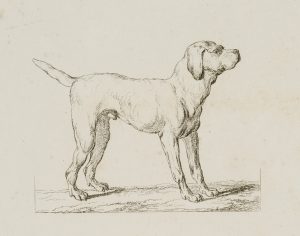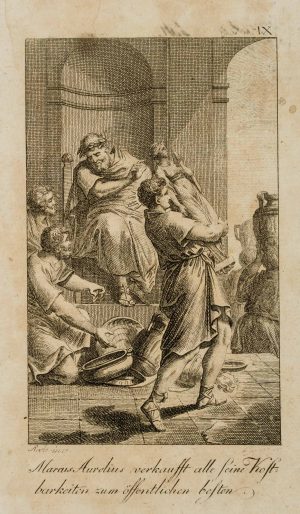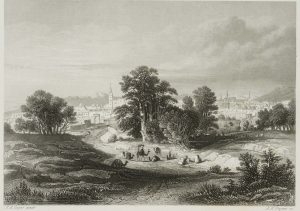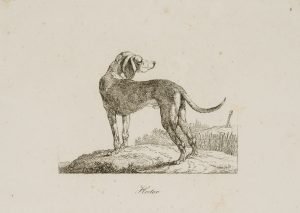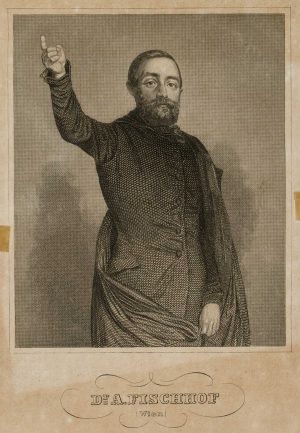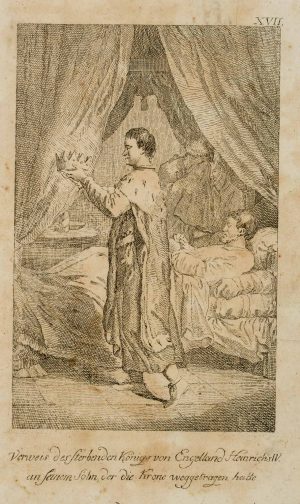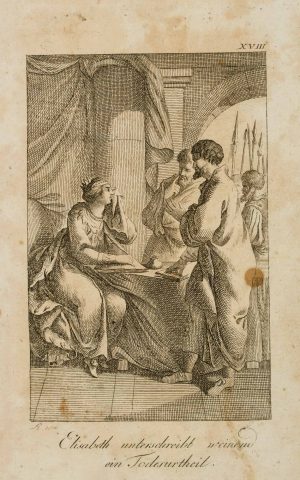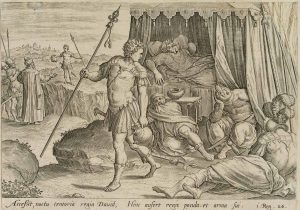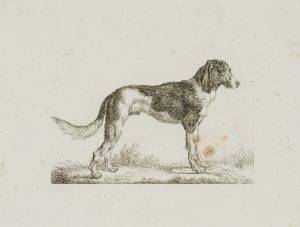Carl August Schwerdgeburth (1785 Dresden – 1878 Weimar), Jery und Bätely nach Goethes Libretto 1790, 19. Jahrhundert, Kupferstich
- Technik: Kupferstich auf Papier
- Datierung: 19. Jahrhundert
- Beschreibung: Illustration zu Goethes Libretto “Jery und Bätely”
- Quelle: Johann Wolfgang von Goethe (1749 Frankfurt-1832 Weimar) Jery und Bätely | Oper, Genre
- Schlagworte: Mode, Frankreich, Romantik, 1800-1849
- Größe: 16,0 cm x 12,0 cm
- Zustand: leicht stockfleckig Radierung nach Ramberg, gestochen von Schwerdgeburth.
English Version:
Carl August Schwerdgeburth (1785 Dresden – 1878 Weimar), Jery und Bätely nach Goethes Libretto 1790, 19th century, Copper engraving
- Technique: Copper engraving on Paper
- Date: 19th century
- Description: Reichardt was the son of the town musician Johann Reichardt and was trained from childhood in music and especially in playing the violin. When he was ten years old, his father took his “wonder boy” on concert tours in East Prussia. concert tours in East Prussia. At Kant’s instigation, he studied law and philosophy in his hometown and in Leipzig from 1769 to 1771. In 1771, however, he escaped a bourgeois choice of profession by becoming a lawyer under the ? Sturm und Drang? virtuoso journey. In 1774 he returned to Königsberg and became chamber secretary in Ragnit. In 1775 Frederick II. Friedrich II, to whom he had sent his opera Le feste galanti as a test piece, appointed him Royal Prussian Court Kapellmeister in place of Johann Friedrich Agricola. After only two years he retired, married the singer, pianist and song composer Juliane Benda (*14 May 1752 in Berlin ? 9 May 1783 there) and concentrated on writing and composing songs and instrumental works. On his way back from his first trip to Italy in 1783, he stopped in Vienna, where he met Emperor Joseph II and Gluck. Further art trips to France and England did not lead to the lasting appeal he had hoped for ? reluctantly he returned to Berlin . From 1786 he developed closer relations with Goethe , Herder , Schiller and Hamann . Further attempts (1788) to gain a foothold in Paris failed, but Reichardt was enthusiastic about the ideas of the Revolution . After the publication of his Vertraute Briefe (1792), he was dismissed in 1794 as a revolutionary sympathizer without a pension from his post as court conductor and lived first in Hamburg, where he published the Journal Frankreich, then since 1794 in Giebichenstein near Halle (Saale). In 1796 he was pardoned and appointed saline director in Halle, from where he often went to Berlin to conduct performances of his compositions. The Kästnersche Kossätengut at Giebichenstein, which he had acquired, became the ? Hostel of Romanticism? Another trip to Paris (1803) considerably dampened his enthusiasm for the French and their politics: Reichardt became an opponent of Napoléon . When four years later his estate was plundered by French troops, he fled to Gdansk and became a patriot and freedom fighter. Napoléon’s brother Jérôme in Kassel appointed the impoverished returnee as theater director in 1807. This interlude lasted only about nine months. In November 1809 he sought success in Vienna. The experience of Haydn, Mozart and Beethoven made him – belatedly – receptive to Viennese Classicism. However, he soon withdrew to Giebichenstein, where he died in solitude on June 27, 1814, as a result of a stomach ailment. His grave is in the courtyard of the church of St. Bartholomew in Halle. Reichardt was constantly traveling: 1783 in Italy , Switzerland , Vienna and Hamburg 1785 and 1792 in London 1785/86/87, 1792, 1802/03 in Paris 1790 in Italy 1793 in Copenhagen and Stockholm . Contemporaries quickly forgot him and his work. The first son, Wilhelm (1777?1782), died early. His daughter Louise Reichardt (* April 11, 1779 in Berlin, ? November 17, 1826 in Hamburg) also became known for song compositions. Reichardt gained a reputation as a composer especially through his compositions of Goethe’s songs, in which he was able to develop his individuality with complete freedom, but no less so through his Singspiele, an artistic genre that he also knew how to ennoble with Goethe’s assistance in his Claudine von Villa Bella (1789), Erwin und Elmire (1790), Jery und Bätely (1790). He also set 49 of J. G. Herder’s songs to music. His literary works are of lasting value, especially the letters of an attentive traveler concerning music (1774?76) Über die deutsche comische Oper (1774) Musikalisches Kunstmagazin (1781?1792) Studien für Tonkünstler und Musikfreunde (1793) Vertraute Briefe aus Paris (1804) Vertraute Briefe aus Wien (1810) and others.
- Source: Johann Wolfgang von Goethe (1749 Frankfurt-1832 Weimar) Jery und Bätely | Opera, Genre
- Keywords: Romanticism, Engraving, Fashion, France
- Size: 16,0 cm x 12,0 cm (6,3 x 4,7 in)
- Condition: slightly foxed etching after Ramberg, engraved by Schwerdgeburth.

